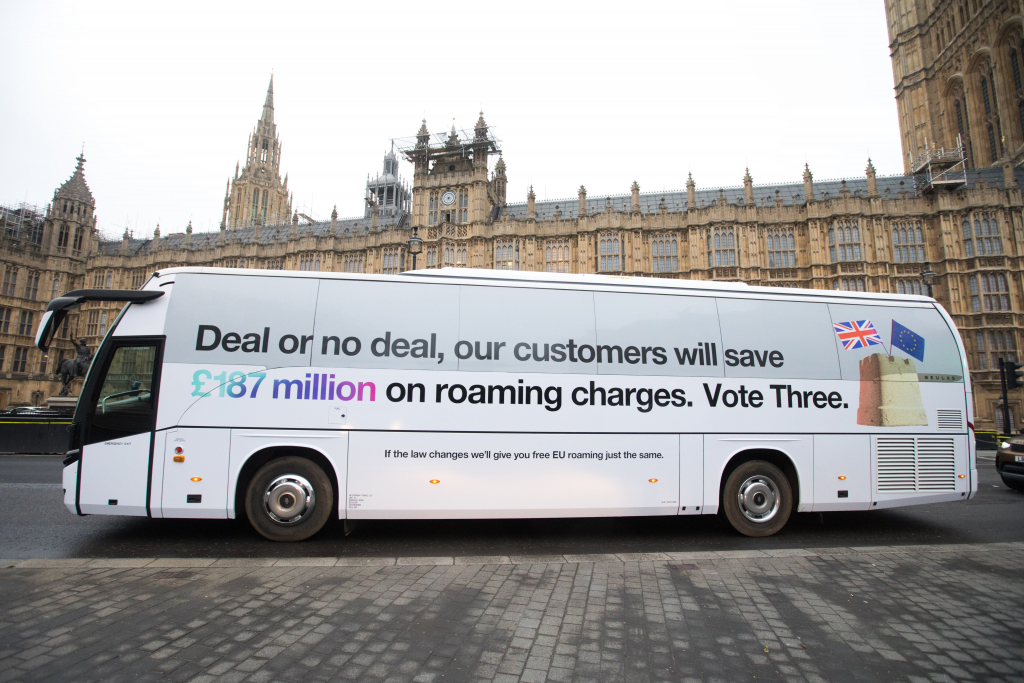During the EU referendum campaign, there were some concerns that a vote to leave the EU would see the reintroduction of mobile roaming charges for UK customers who were travelling in Europe. Since 2007, EU regulations had been reducing the cost of roaming, and all roaming charges were abolished in June 2017 – but many operators had removed their charges before that point in anticipation. The worry was that, without the EU regulations compelling operators to continue with no charges, prices would rise again. Such a concern was, as ever, dismissed.
[suggesting that roaming charges might come back is] “doing down consumer rights to try and win the referendum… there is no evidence to suggest that they will go up if we vote Leave.”
Matthew Elliott, April 2016
Elliott was not alone. Boris Johnson stated that there would be no reason for roaming charges to increase, relying instead on the free market and competition to drive prices down, “without the need for a vast supranational bureaucracy.”
Newspapers and commentators seized on this. The Daily Telegraph ran a story headlined “Mobile phone charges won’t go up after Brexit” in February 2017; the Sun continued to claim this in January 2021, with “Mobile phone operators will not bring back roaming charges for Brits travelling in Europe“. Neither went as far as the Express in their culture-war encouraging “Brexit lies EXPOSED: Mobile roaming charges WON’T come back for Brits travelling to the EU” in September 2018.
And, to be fair to the newspapers, the mobile operators were also claiming no change. Three went so far as to park a bus outside the Houses of Parliament promising they would continue to offer free EU roaming. Vodafone and EE made similar statements.

And yet, with today’s statement that Three is to introduce a £2 daily charge for roaming, every mobile operator has now gone back on those commitments.
The thing is, this is something that is entirely out of their control, and they should never have promised this in the first place. The EU regulations had two key impacts:
- On the consumer side, operators would not be allowed to charge any more for voice or data for consumers who were roaming than they charged at home.
- This was enabled by the wholesale side: network operators were not able to charge other EU-based operators excessive termination or roaming rates.
For you to use, say, an EE phone in France, you must connect to a French network – Orange, SFR, Free, Bouygues. These networks incur a cost when allowing you to receive and send data, and they charge your operator to cover this cost. In the past, these charges were frequently very high, since this was a perfect example of a price inelastic market – the person generating the demand was not the one paying for it; the wholesale cost was just one input to the price; there was little competition impact since few roamers specifically chose which network they were using; roaming was usually only used by business travellers due to the cost and this introduced a further disconnect between use and payment. Both French operators charged UK operators a high price, and UK operators charged French operators similarly, to try to maximise revenue.
By setting limits on wholesale charges (Regulation 2017/920), the EC undertook to break this cycle of high charges, and enable retail prices to be set at the appropriate level. With this regulation, EE did not lose out on its retail side, since the cost of inputs reduced at the same time as the price it charged. EE did lose out on the wholesale side, though, as it was no longer allowed to charge high fees to incoming roamers.
Of course, this regulation on wholesale charges applies only to EU operators charging other EU operators. With the UK’s departure from the EU, this no longer applies. While it would have been possible to include equivalence for this in the UK’s trade deal with the EU, this wasn’t done, and instead governments would simply encourage operators to have “transparent and reasonable rates” for roaming. There is no definition of reasonable, so network operators across the EU are now at liberty to charge UK operators above-cost fees for hosting their visitors. UK operators are being forced to reintroduce charges because their wholesale costs are going up, and there’s nothing they or the UK government can do about this; that ship has sailed.
Incidentally, the charges are not overly harsh, and seem to generally be a flat fee per day rather than a per-MB fee. This is likely an effort to disincentivise people from using their phones rather than passing on the costs directly. It may be that there are higher fees to come.